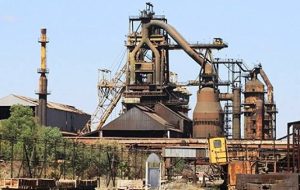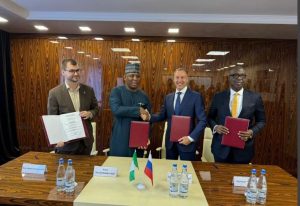
Ajaokuta Steel Mill
The Federal Government of Nigeria has taken a significant step toward revamping its industrial base with the rehabilitation of the Ajaokuta Steel Plant, a long-standing but underutilized national asset. Scheduled to begin in the first quarter of 2025, this revitalization project comes on the heels of efforts to restore the Port Harcourt Refinery. The move highlights a broader strategy to boost industrial output and reduce dependency on imports.
Background and Significance
Ajaokuta Steel Plant, located in Kogi State, was envisioned as a cornerstone of Nigeria’s industrial sector. However, for decades, its operations remained stalled due to mismanagement, funding constraints, and lack of technical support. Despite its dormant status, the plant has consistently been seen as critical for industrial development, given its potential to reduce steel imports, estimated at over $4 billion annually, and to catalyze job creation in the manufacturing sector
The 2024 Agreement
In September 2024, Nigeria signed a Memorandum of Understanding (MoU) with a Russian consortium led by Tyazhpromexport (TPE), the original builders of the Ajaokuta Steel Plant. The MoU covers the rehabilitation, completion, and operationalization of the steel plant as well as the National Iron Ore Mining Company (NIOMCO) in Itakpe. Both facilities are crucial for ensuring a steady supply of raw materials and achieving production efficiency.

The Nigerian delegation, led by the Minister of Steel Development, Prince Shuaibu Audu, and representatives of the Russian Federation met in Moscow to finalize the deal. This agreement also includes collaboration with private firms like Novostal M and Proforce Manufacturing Limited, who will bring technical expertise and investment
Implementation Plan
Preliminary inspections conducted by the consortium in 2024 laid the groundwork for the project. The rehabilitation process will be accompanied by a comprehensive audit of the plant to identify and address technical issues. The project is expected to kick off in early 2025, with phased execution to ensure sustainability. This strategic approach will also involve training local engineers to manage operations post-rehabilitation, ensuring knowledge transfer and long-term success
Impact on Nigeria’s Economy
The successful revival of the Ajaokuta Steel Plant could transform Nigeria’s economy by fostering industrialization, creating thousands of jobs, and saving foreign exchange spent on steel imports. Additionally, the plant’s output could support infrastructure development, construction projects, and the manufacturing sector, creating a ripple effect across the economy.
This project aligns with the federal government’s broader goal of reducing dependence on crude oil revenues by diversifying into industrial manufacturing. Moreover, with the Port Harcourt Refinery nearing completion and functioning at increased capacity, Nigeria is signaling its intent to reclaim its position as a self-sustaining industrial hub in Africa
Challenges and Outlook
While the project has generated optimism, past efforts to revive Ajaokuta have faced setbacks due to political interference and lack of sustained funding. Ensuring the project’s success will require transparent governance, continuous funding, and a conducive business environment. Collaboration with international partners like Russia could help overcome these challenges, provided commitments are honored by all parties involved.
The rehabilitation of the Ajaokuta Steel Plant is not just about steel production; it’s about reigniting Nigeria’s industrial ambition. With the 2025 timeline in sight, this project holds the promise of unlocking economic growth and industrial self-reliance for the nation.

